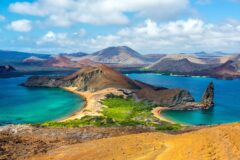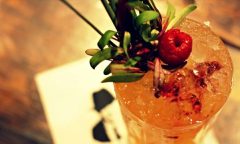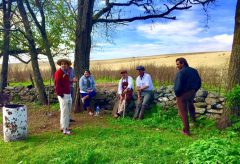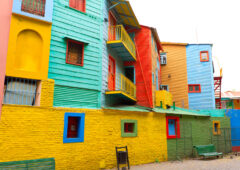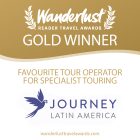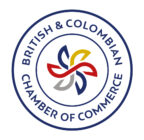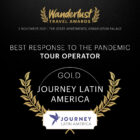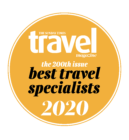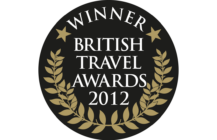Group - Classic
Gaucho: Vintage Argentina
12 days from £3,607pp
(based on two people sharing & excluding flights)
Essentials
-
Tour info
-
Country info
-
What's included
Tour info
About Our Group Tours
To find out more about how our group tours including group sizes, solo travellers and why to choose us. Please click here.
Tour Leader
On this tour, you’ll be accompanied from start to finish by one of our exceptional Journey Latin America tour leaders. From the moment you land in Latin America until the day the tour ends they will deal with all the practicalities, expertly adapting to the circumstances and individual needs of the group. Rather than different guides in different cities, your leader will get to know the group and keep you informed and entertained as you go.
Summary Of Nights
12 days, 11 nights: Santiago 2; Mendoza 2; Salta 3; Puerto Iguazú 2; Buenos Aires 2.
Accommodation
We use the following mid-range and upper mid-range hotels on this tour.
- Santiago: Cumbres Lastarria
- Mendoza: Diplomatic Hotel
- Salta: Design Suites
- Puerto Iguazú: Hotel Mercure
- Buenos Aires: Loi Suites
On very rare occasions these hotels can change, however please speak to one of our consultants who can provide full details for each departure if you have any doubts. Address and contact details will be sent out with your final documents.
Transport
4 flights. Santiago to Mendoza and Iguazú to Buenos Aires are always direct flights. We base the tour around direct flights between Mendoza and Salta and Salta and Iguazú, but due to frequent schedule changes by the companies operating flights within Argentina, these may have to go via Buenos Aires. All land transport is operated privately for the group.
Meals
Breakfast daily and lunch days 4 and 11.
Optional Excursions
On this tour the price includes excursions in all the places you visit as per the itinerary. There will however likely be some free time when you may choose to take part in an optional excursion. These are booked locally through your tour leader once you are in Latin America, however we are more than happy to advise you of what is on offer in advance of your holiday so you can best plan the excursions that suit you.
Travelling Alone
There is no extra cost for single travellers who are willing to share a room. You will be accommodated with a same-sex member of the group who is usually also travelling solo. For single travellers who wish to be sure of having their own room there are a limited number of single supplement places available, which carry a surcharge.
Climate
This holiday runs throughout the year. As a broad overview Chile and Argentina has the opposite seasons to the UK, meaning November to February tend to be the warmest summer months. The further south you travel in the country the cooler it gets, although this varies with altitude. A comprehensive overview of the weather in all the regions you are visiting can be found in our Destination pages. Our Travel Experts can answer your questions on climate and further details will be sent with your confirmation documents.
Clothing, Equipment and Luggage
A daypack is essential for carrying rainwear, snacks, books/tablet and a water bottle as are comfortable walking shoes. Bring a hat with a visor, sunglasses and sun block. Binoculars are useful for bird and wildlife spotting. Because the weather can be changeable, we recommend wearing layered clothing for excursions.
Please take note that Aerolineas Argentinas (who will operate most of the internal flights) permit a maximum of 15kg hold luggage on most domestic flights. Excess luggage can be paid for locally for a small fee. Please get in touch with the office before departure if you have any doubts.
Money
Please see the Country Info tab on this holiday for our latest currency information and advice about how to take your spending money. Tipping in Latin America is almost always done using cash. It is customary to tip tour leaders, local guides, drivers, boat crews and other service providers such as restaurant staff and porters. Full tipping guidelines are sent with your confirmation documents as is advice on local costs.
Health, Entry Requirements and Insurance
For health information on Chile and Argentina including recommended vaccinations, please see https://travelhealthpro.org.uk/
All Latin American countries have specific entry regulations related to Covid 19. Please also check our Travel Hub for further information.
Holders of a full British passport do not require a visa, although passports should be valid for at least 6 months after the trip begins. Other nationalities should enquire with us or check with the consulates.
Travel insurance is essential. Details of our recommended policy can be found on the Travel insurance website.
Our full briefing dossier contains more information on vaccinations, visas and insurance and will be provided with your final travel documents or can be requested from your travel consultant at any time.
Country info
When is the best time to visit Chile?
Chile is a year-round destination. The southern hemisphere's seasons are the reverse of Europe’s, with December-February as mid-summer. Spring (October-November) and autumn (March-April) can be pleasant and quieter, while winter (June-August) is coldest. The lake district, Santiago and Valparaiso have warm, sunny summers, while in Patagonia weather is more unpredictable. The Atacama Desert has extremes of heat and cold, while Easter Island has pleasant temperatures all year, warmest October-March, cooler June-September.
For more detailed information visit our When To Go section.
What is the official language of Chile?
The official language of Chile is Spanish.
How do I get local currency in Chile?
The local currency in Chile is the Chilean Peso. Notes can be withdrawn from the many ATMs in larger towns and cities using a UK credit or debit card. Limits may be lower than your UK bank allows. There are also many banks and money exchanges (casas de cambio) where you can exchange US dollars cash; rates for euros and sterling are harder to find and frequently poor. Non-resident foreign guests at hotels in Chile do not normally pay the 19% VAT on most extras (such as food and drink consumed on the premises) if the bill is settled in US$ (cash or credit card) upon checking out.
What's the time difference between Chile and UK?
The time difference between the UK and Chile is GMT -4 hours. Sometimes daylight saving is observed in the summer, from Sep/Oct to early Mar.
What countries combine well with Chile?
Bolivia, accessing the south of country from San Pedro de Atacama, travelling via salt lakes of the Salar de Uyuni; Argentina, crossing the Andes over one of several scenic passes: from the Atacama Desert in the north to Salta, from Santiago to Mendoza, via the lakes crossing from Puerto Varas to Bariloche in the lake district and from Torres del Paine to El Calafate in Patagonia.
Do I need a visa to visit Chile?
Holders of a full British passport do not require a visa, although passports must be valid for at least 6 months after the trip begins. Anyone with a different nationality should enquire with us or check with the relevant consulate.
If flying to the US, or via the US you will need to fill in your online ESTA application.
What vaccinations do I need for Chile?
Please check Travel Health Pro for information on health recommendations and vaccinations for the destinations you are visiting. Please note that many Latin American countries require proof of vaccination against Yellow Fever if you have recently travelled to another country where Yellow Fever is present.
What are the festivals, cultural and sport events in Chile?
Tapati festival, Easter Island is normally during the first 2 weeks of February with traditional music, dance and sports.
On New Years Eve Valparaiso has an impressive firework display.
What do I need to know about altitude in Chile?
Whilst a typical holiday in Patagonia presents no challenges with altitude, parts of northern Chile (Lauca National Park and parts of the Atacama Desert) offer a spectacular introduction to the high Andes, with several attractions at over 3,000m. Travel to high altitude can cause mountain sickness and even if you feel fighting fit it’s important to take things easy and stay hydrated (drink plenty of water, avoiding alcohol and caffeine) as you get used to the thin, dry air. You may initially notice a headache, dizziness or breathlessness and this usually improves with acclimatisation. If you are pregnant or taking the contraceptive pill, have a medical condition such as heart or lung condition, anaemia, asthma, high blood pressure you should seek the advice of your GP before booking. We also recommend you check your travel insurance covers travel to high altitude. If you’re taking the family, remember small children may be less capable of communicating altitude-related symptoms effectively: keep an eye on them too. Rest assured we will plan your itinerary carefully, taking into account any time spent at altitude. If you have any questions or concerns about altitude please speak to your travel expert.
Further advice on travel to altitude is available on www.travelhealthpro.org.uk.
When is the best time to visit Argentina?
Argentina is so large it’s always a good time to go somewhere. The southern hemisphere summer is the reverse of our own, with Dec-Feb being high summer in Patagonia. Spring (Oct-Nov) and Autumn (Mar-Apr) can still be very pleasant and are quieter. While summers in the lake district are reliably warm and sunny, the further south in Patagonia you go the more unpredictable the weather. In Winter (June-Sept) some hotels in Patagonia close, while others stay open for skiers. Buenos Aires, Mendoza and Córdoba enjoy a Mediterranean-type climate, with cool winters and very warm summers. North-west Argentina (Salta and Jujuy) enjoy sunshine and warm temperatures year-round but are influenced by altitude and the high Andes, with occasional cold snaps (June-Sept) and a rainy season (Jan-Feb). Iguazú Falls and Misiones has a subtropical climate, although it can be chilly July-Sept.
For more detailed information visit our When To Go section.
What is the official language of Argentina?
The official language of Argentina is Spanish.
What is Argentina's official currency?
The official currency of Argentina is the Argentine Peso.
Although cards have become more widely accepted, cash remains useful in Argentina so don’t rely solely on your cards. Taking funds in a mix of formats (a supply of US$ cash to convert into Pesos locally, along with your cards) is a sensible plan. In Buenos Aires and main tourist hubs you should have few problems paying by card but in more remote areas often only cash is accepted. You’ll also need cash for tips (eg if you pay for a restaurant meal with a card, tips are always left in cash). When changing money, denominations of US$50 and US$100 are usually preferred and you should make sure your notes are in perfect condition. Although ATMs are available, local ATM fees are high and the amount you can take out is lower than in the UK. We tend to avoid them.
We think it’s a good idea to keep an eye on Argentina’s exchange rates before you go. In addition to the official (BNA) rate of exchange for converting your US Dollars to Pesos, Argentina also uses a parallel exchange rate for foreign tourists (MEP). This is about 15% better than the official rate. Some casas de cambio will automatically apply the better tourist rate when changing your money. Others will only apply the official (BNA) rate. Rates used to process credit/debit card transactions can vary between card issuers, but you should find you get something between the official and tourist rates. Check your statement.
Try not to end up with a lot of leftover Pesos at the end of your time in Argentina, as it is difficult to change them to other currencies. You should be able to spend them at the Duty Free shop at Buenos Aires airport.
Please note that given the changeable situation with the Argentine economy, currency matters can change at short notice.
What's the time difference between Argentina and UK?
The time difference between Argentina and UK is GMT -3 hrs. Sometimes daylight saving is observed in the summer, from Sep/Oct to early Mar, but not every year.
Do I need a visa for Argentina?
Holders of a full British passport do not require a visa, although passports must be valid for at least 6 months after the trip begins. Anyone with a different nationality should enquire with us or check with the relevant consulate.
If flying to the US, or via the US you will need to fill in your online ESTA application.
What vaccinations do I need for Argentina?
Please check Travel Health Pro for information on health recommendations and vaccinations for the destinations you are visiting. Please note that many Latin American countries require proof of vaccination against Yellow Fever if you have recently travelled to another country where Yellow Fever is present.
Which other countries combine well with Argentina?
Chile, accessing the country by crossing the Andes over one of several scenic passes: from Salta in the northwest to the Atacama Desert, from Mendoza to Santiago, via the lakes crossing from Bariloche to Puerto Varas in the lake district and from El Calafate to Torres del Paine in Patagonia; Brazil, via the land crossing at Iguazú.
What are the festivals and other cultural or sporting events in Argentina?
• Tango Festival: Buenos Aires, August.
• Polo Open: Buenos Aires province, weekends in November.
• Gaucho Festivals: The pampas, early November.
How do I adapt to the altitude in Argentina?
Whilst a typical holiday in Patagonia presents no challenges with altitude, Argentina’s north-western provinces offer a taste of the high Andes with some spectacular road trips on offer. Travel to high altitude can cause mountain sickness and even if you feel fighting fit it’s important to take things easy and stay hydrated (drink plenty of water, avoiding alcohol and caffeine) as you get used to the thin, dry air. You may initially notice a headache, dizziness or breathlessness and this usually improves with acclimatisation. If you are pregnant or taking the contraceptive pill, have a medical condition such as heart or lung condition, anaemia, asthma, high blood pressure you should seek the advice of your GP before booking. We also recommend you check your travel insurance covers travel to high altitude. If you’re taking the family, remember small children may be less capable of communicating altitude-related symptoms effectively: keep an eye on them too. Rest assured we will plan your itinerary carefully, taking into account any time spent at altitude. If you have any questions or concerns about altitude please speak to your travel expert.
Further advice on travel to altitude is available on www.travelhealthpro.org.uk
Inspired by this trip
Our exciting range of articles on Latin America explore everything from iconic destinations and lesser-known cultural gems to delicious traditional recipes. You’ll also find exclusive travel tips, first-hand client reviews and the chance to get your personal questions answered by our travel experts.
Papagaio
Your edit for Latin American inspiration
Our exciting range of articles on Latin America explore everything from iconic destinations and lesser-known cultural gems to delicious traditional recipes. You’ll also find exclusive travel tips, first-hand client reviews and the chance to get your personal questions answered by our travel experts.
View Extraordinary Inspiration